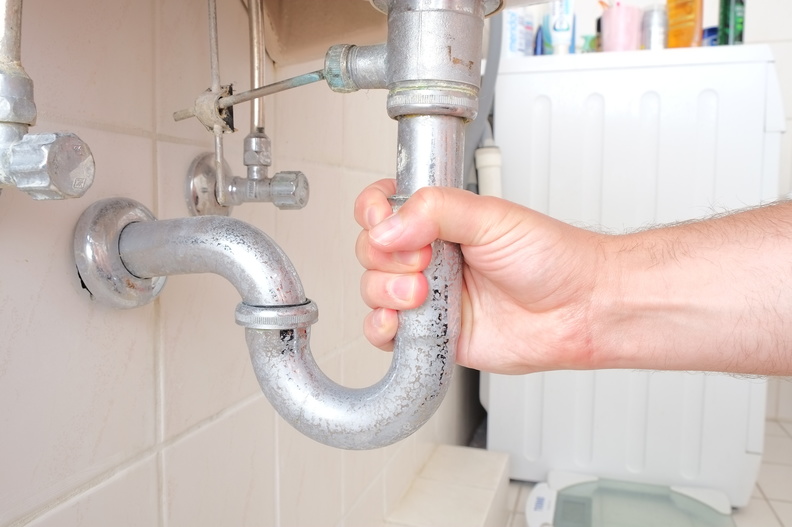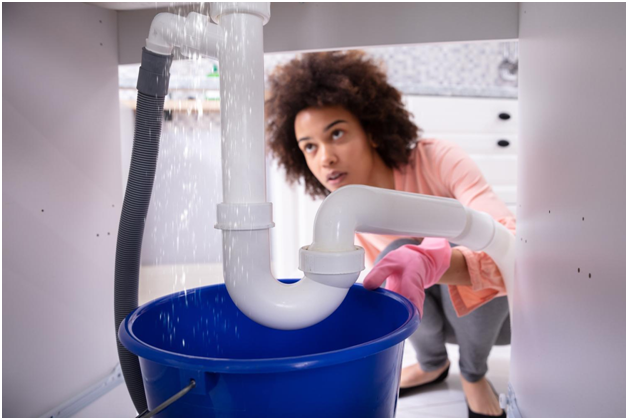Emergency Fixes: Steps to Manage Issues Until Help Arrives
Emergency Fixes: Steps to Manage Issues Until Help Arrives
Blog Article
The content in the next paragraphs pertaining to What to Do During a Plumbing Emergency is especially stimulating. Check it out yourself and figure out what you think of it.

Pipes emergencies can strike at any time, causing stress and anxiety and possible damages to your home. Whether it's a ruptured pipe, a blocked drainpipe, or a dripping faucet, knowing how to manage the scenario till an expert plumbing technician arrives can save you from more issues. This post provides essential emergency situation plumbing pointers to assist you reduce damage and regain control throughout a plumbing situation.
Shut off the Supply Of Water
The initial step in any pipes emergency situation is to turn off the water supply. For local issues, such as a dripping tap or bathroom, switch off the shutoff near the fixture. When it comes to a significant leak or ruptured pipe, locate your home's major water shut-off valve and transform it off promptly. Understanding the location of these shutoffs beforehand can conserve important time throughout an emergency situation.
Address Little Leaks with Short-lived Repairs
Small leakages can quickly come to be substantial problems if left unchecked. Make use of these short-lived repairs until expert help gets here:
While these repairs aren't irreversible, they can help reduce water loss and damages.
Unclog Drains Safely
A clogged up drain can be an aggravating and unpleasant problem. Below's how to tackle it:
If these approaches do not work, avoid using excessive force, as it may intensify the obstruction.
Handle Overflowing Toilets
An overruning commode can create prompt chaos. Here's what you should do:
Shut down Your Hot Water Heater
In certain emergencies, such as a burst pipe, it's wise to shut off your water heater. This avoids overheating or damages to the device when water quits moving. Shut off the power supply to the water heater (electric or gas) and let it cool down to avoid potential hazards.
Momentarily Quit a Ruptured Pipe
A burst pipeline can bring about substantial water damages in mins. To alleviate the problem:
Call a professional plumbing professional promptly to deal with the problem completely.
Deal With Frozen Pipes Very Carefully
In chillier environments, frozen pipes are an usual emergency. If you believe a frozen pipeline:
Stop Further Damages
Taking quick activity to minimize damage can conserve you time and money in the future. Here's exactly how:
. Have an Emergency Pipes Package
Prepare a basic plumbing emergency set to take care of small issues efficiently. Your set must consist of:
Having these devices accessible can make a significant difference in your ability to handle emergency situations.
Know When to Call an Expert.
While quick fixes can aid momentarily, particular pipes issues require immediate professional attention. Call a plumbing technician if:.
Quickly getting in touch with an expert guarantees the issue is dealt with correctly and protects against more difficulties.
Verdict.
Plumbing emergencies can be overwhelming, but with the appropriate expertise and devices, you can handle the circumstance efficiently until help gets here. By switching off the water system, attending to small leaks, and making use of short-lived repairs, you can reduce damage and maintain your home safe. Bear in mind, these tips are short-lived options; always speak with a licensed plumbing technician to deal with the root cause of the trouble. Prep work and quick reasoning are your finest allies in any type of plumbing emergency situation.
8 Helpful Tips for Managing Plumbing Emergencies at Home
If your plumbing system hasn’t failed once, wait for it because almost everyone has a story to tell. Sometimes, it could be simple emergencies such as a leaking pipe, a blocked cistern, or even a big burst pipe. In situations like this, you need to have some handy tips to save you some money and from possible damages.
Take care of minor issues early.
Sometimes, you could have avoided an emergency by taking proactive measures while it was still early. Some major plumbing emergencies can be a result of an ignored minor issue. We recommend that you have items like plumbing tapes and other related items. A plumbing tape can allow you to manage minor leaks before the plumber arrives.
Cut off the water supply.
This tip is essential in almost any type of leakage problem. For problems like minor leakages in the toilet or kitchen, turn off the supply that takes water to the affected pipes. If the leakage is a major pipe, you must shut off the supply valve to the entire building. This will help you avoid flooding your home and neighbors if you share a flat.
Know your plumbing system
Folks typically move into a new apartment without understanding the water supply around the building. This can prove disastrous if a water emergency arises and the plumber is far away. The previous tip will prove useless if you don’t practice this one. More importantly, know where your water shut-off valve is located – you’ll need that knowledge to prevent potential home floods.
Have some common handy tools
There are lots of plumbing emergencies that you can handle without hiring a plumber. That’s why you must keep some tools available always. Some tools that you can use to fix simple plumbing emergencies easily include plumbing tapes, screwdrivers, thread seal tapes, plungers, pliers, tape measures, and rubber gloves.
Insulate your pipes from cold
You’ll save yourself from many plumbing expenses if you protect your water pipes from the cold. This is because of the harmful effects that cold weather can have on your pipes. During winter, your pipes can burst from being overly expected to freezing temperatures. So, make sure insulators are there to keep the pipes working correctly.
Avoid practices that will clog your toilet.
Many people indulge in practices that can damage the plumbing system of the entire building. One of these is when they use their toilet to dispose-off garbage. They flush all kinds of things, such as paper towels, bandages, hairs, female sanitary products, etc., down the toilet. This will block your toilet in the long run, incurring unnecessary expenditures. Dump such waste in the trash instead.
Check your dials regularly.
Sometimes, there could be leakages in your home without noticing them in time. So, constantly monitor your water meter dial. If the dial is reading when there is nobody using water, this is an indicator that there is leaking. Check for leaks immediately. Call a plumber as soon as possible if you can’t find any.
https://www.constructionplacements.com/8-helpful-tips-for-managing-plumbing-emergencies-at-home/

Hopefully you enjoyed reading our section about Expert Tips for Managing a Plumbing Emergency Until Help Arrives. Many thanks for taking a few minutes to browse our posting. Sharing is good. Helping others is fun. Many thanks for going through it.
Website Report this page